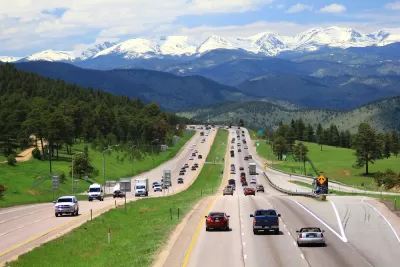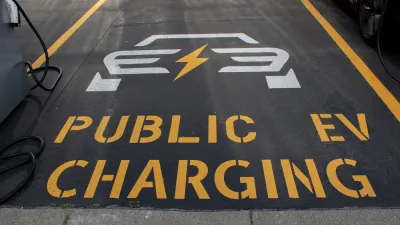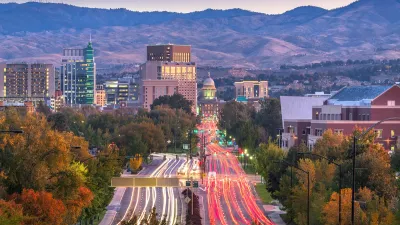New research assesses the potential implications of reduced car ownership on the design of roads and communities.

A new report from the Institute of Transportation Engineers analyzes how a decline in vehicle ownership could change the way planners design cities, reports Lori Aratani in The Washington Post.
The findings highlight the differing needs of people who choose to not own a car and people who are carless by necessity due to the high cost of car ownership or other barriers. “The report recognized that not having a car might not be a choice — some can’t afford to own and maintain a vehicle — which the study said underscores a need to adopt strategies to address such inequities.”
Civil engineer Douglas S. Halpert spoke with The Washington Post about the report, saying that “You’re already seeing changes in roadway design to accommodate additional modes other than personal vehicles, and there are more analysis metrics for operations other than delay and safety, which are becoming more generally accepted.”
According to the article, “The report’s authors want policymakers to consider whether transportation infrastructure funding is being invested in a balanced way that meets the needs of all travelers.” Halpert added that providing effective and attractive alternative transportation options is key to incentivizing people to reduce their car use.
FULL STORY: How a future with fewer cars may change how communities are designed

Trump Administration Could Effectively End Housing Voucher Program
Federal officials are eyeing major cuts to the Section 8 program that helps millions of low-income households pay rent.

Planetizen Federal Action Tracker
A weekly monitor of how Trump’s orders and actions are impacting planners and planning in America.

Ken Jennings Launches Transit Web Series
The Jeopardy champ wants you to ride public transit.

Sacramento Plans ‘Quick-Build’ Road Safety Projects
The city wants to accelerate small-scale safety improvements that use low-cost equipment to make an impact at dangerous intersections.

How Project Connect Would Change ‘The Drag’
A popular — and sometimes deadly — Austin road will exchange car lanes for light rail.

Milwaukee Road to Get Complete Streets Upgrades
The city will reduce vehicle lanes and build a protected multi-use trail including bioswales and other water retention features on its ‘secret highway.’
Urban Design for Planners 1: Software Tools
This six-course series explores essential urban design concepts using open source software and equips planners with the tools they need to participate fully in the urban design process.
Planning for Universal Design
Learn the tools for implementing Universal Design in planning regulations.
Ada County Highway District
Clanton & Associates, Inc.
Jessamine County Fiscal Court
Institute for Housing and Urban Development Studies (IHS)
City of Grandview
Harvard GSD Executive Education
Toledo-Lucas County Plan Commissions
Salt Lake City
NYU Wagner Graduate School of Public Service





























